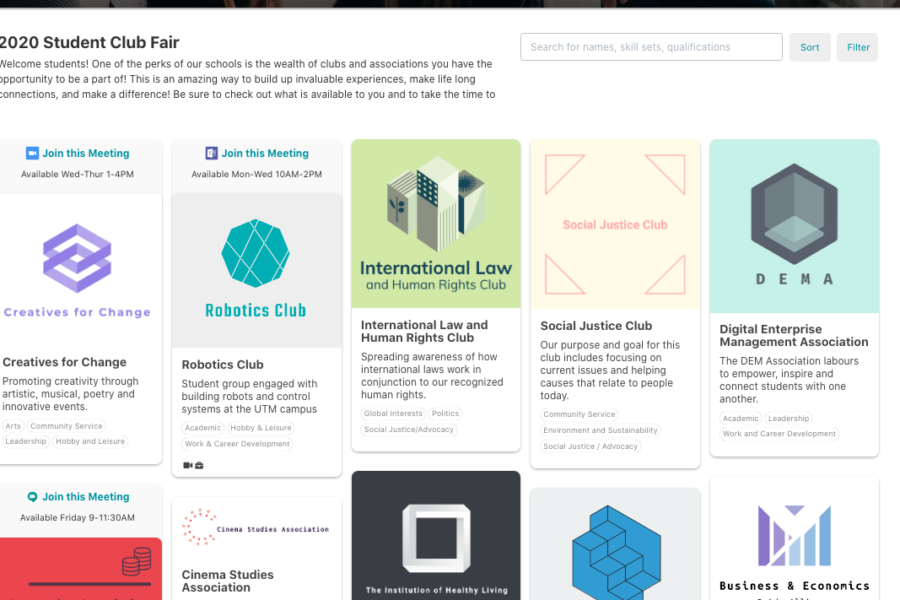For many students, higher education serves as the gateway to a lifelong career. Owing to this, students are willing to commit a tremendous amount of time and resources to crafting detailed reports, writing insightful papers, and studying for their course examinations. According to job recruiters, if education is the doorway to a promising career opportunity, then a well-tailored job application is the key. Despite the importance of tailored resumes and cover letters to the acquisition of an interview, students do not seem to be willing to commit the same level of time and dedication to the creation of their job applications as they do to their academic commitments. Due to students’ unwillingness to produce customized job applications, job recruiters are not seeing the value that students have to offer. From the perspective of a student, I would like to delve further into the reasons as to why this disparity exists.
Student Misconceptions of Resume and Cover Letter Evaluation
For many recruiters, tailored mission statements, and the ability to concisely connect the relevance of one’s experiences to the requirements of a given job posting serve as tools to differentiate applicants. This is a critical point to be considered when applying to any job and it is one that students are ill informed of. Granted, students have access to services such as job search training, mentorship programs, and career development advice however, these resources are underutilized and students are missing valuable information as to how to tailor a job application. For students, it can be difficult to see the value in using such resources for each job application when there is pressure to meet academic deadlines in order to obtain the much desired “A” on a transcript. Resume workshop events are hosted at my University campus on a frequent basis, however attendance to these workshops are low because students are busy sitting in lectures, studying for midterms or working on projects.
Student Perceptions of Competition and the Probability of Being Hired
There is lack of feedback as to where a candidate stands in an application and how competitive the prospective job they are applying to is. Students tend to underestimate the amount of competition within any given application. As a result, students often recycle resumes and cover letters for various job applications rather than producing meaningful content for a specific application. This relates to the simple concept that has been taught to students throughout their education, quantity versus quality, and the tradeoffs that accompany this. Crafting a high quality job application tends to be time consuming and thereby students apply to many job postings to increase the circulation of their job applications. Many students would rather apply to as many job applications as possible, believing they are increasing their probability of obtaining an interview with minimal effort, rather than crafting a single exceptional job application. By doing so, students do not appeal to the majority of recruiters who seek out well crafted and finely tailored resumes and cover letters.
Student Perceptions of the Value of Recruiter Feedback
By convention, recruiters typically do not inform candidates as to why they did not receive an interview. Similarly, students feel as though requests for feedback from recruiters following an unsuccessful application would not be well received, or they may just feel uncomfortable doing so, and do not inquire. It can be quite intimidating to reach out and inquire as to the reason for a failed application for fear of negative feedback. As a result, students miss out on learning opportunities oriented around the value of tailored resumes and continue to send out job applications that do not highlight their competencies. As a student, think of feedback from a job recruiter as you would to learning material from a professor, but in this instance your teacher is the job recruiter and you are learning an invaluable skill – how to obtain employment.
Ultimately, students attend higher education in order to enhance their skills and employment opportunities. However, students are so absorbed in their academics and are losing focus on the end result – attaining a job. This lack of focus is leading to a slew of issues for recruiters and students alike. Recruiters are looking for authenticity and self-awareness from candidates and their typical view of students’ applications are poor. As explored, students are reluctant to produce tailored job applications as a result of perceiving academic commitments more valuable than career development, concluding quantity is superior to quality in regards to increasing the probability of employment, and fear receiving negative feedback from recruiters. The following are suggestions for how students can surpass these perceptions and craft meaningful job applications that I have found useful during my undergraduate studies.
- Attend resume workshops as a study break.
- Invite friends to accompany you to job search training event.
- Narrow your job application scope and find 1-3 job postings that align with your skills best.
- Ensure your job application speaks to the qualification requirements of the job.
- Write a clear and concise mission statement that speaks to how you are emotionally driven and goal driven.
- Follow up with recruiters if you have received an interview as to why your application stood out.
- Follow up with recruiters if you have not received an interview as to how you can improve your application for future endeavors.




